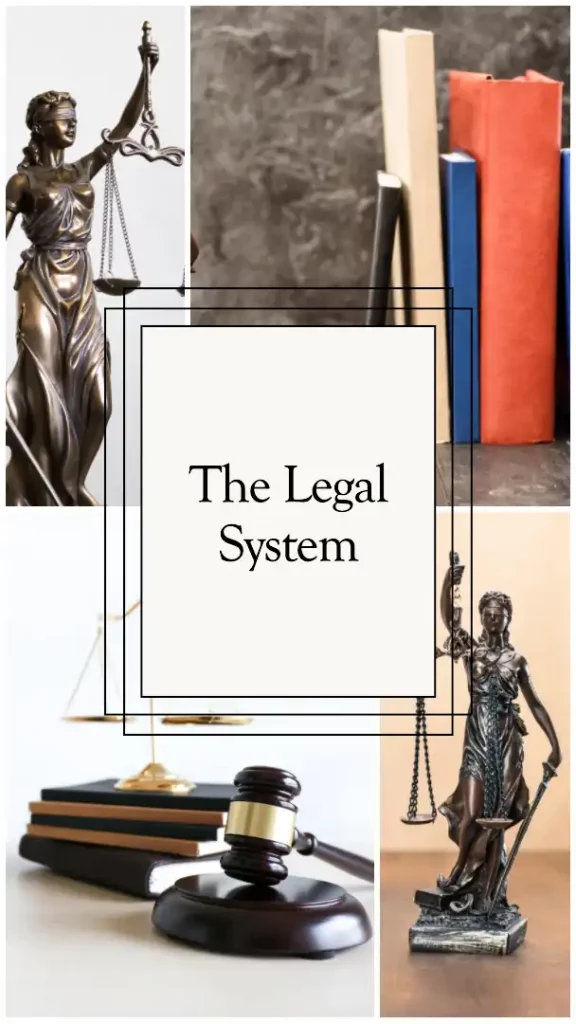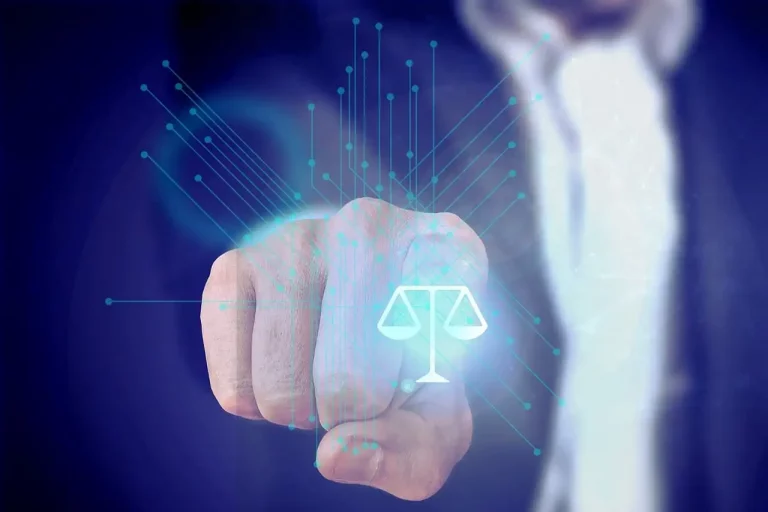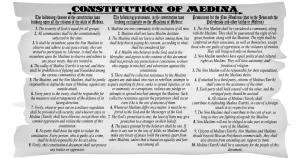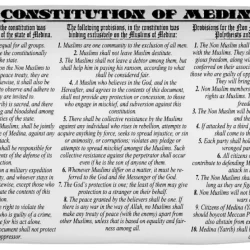How do we regulate the conduct of people and groups in a society? How do we ensure that there is order, justice, and respect for human rights and freedoms? These are some of the questions that a legal system tries to answer. A legal system is not a fixed or universal concept, but rather a dynamic and diverse one, more than just a set of rules. It reflects the history, culture, and politics of the society that created it. It consists of rules and institutions that define, interpret, and enforce the law. It’s like the unseen conductor of the orchestra of society, ensuring that every note plays in harmony.
But here’s the fascinating part: legal systems aren’t a one-size-fits-all affair. They’re like the varied spices that add flavor to a global recipe. Depending on the unique blend of history, culture, and politics, different legal systems emerge, each with its own distinct sources, structures, and rituals. In this article, we will explore what is a legal system, the different types of legal systems, their advantages and disadvantages, and the challenges they face in the modern world.
What is a legal system?
A legal system encompasses rules, procedures, and institutions that facilitate the execution of public initiatives and private activities within a society. It provides a framework for maintaining order, resolving disputes, and upholding justice. Legal systems can vary significantly across different countries and cultures.
In the context of law, a legal system refers to the overall structure that governs laws and their enforcement. This includes constitutions, statutes, regulations, and judicial decisions. Common types of legal systems include civil law and common law systems. Civil law systems are based on codified laws and principles, while common law systems rely on precedent and case law.

Legal systems can vary significantly across different countries and cultures. This is because different countries have different histories, cultures, and values. For example, in Bangladesh, a common law legal system is established, which has evolved over time and is rooted in British legal traditions. The legal system in Bangladesh is based on a written constitution, legislative enactments, and interpretations by higher courts.
What are Legal Rights? Its Essentials and Classification
Here are some of the key features of a legal system:
Rules and procedures: A legal system is based on a set of rules and procedures that are designed to be fair and impartial. These rules and procedures are usually written down in laws, constitutions, and other legal documents.
Dispute resolution: A legal system provides a forum for resolving disputes between individuals and organizations. This can be done through the courts, arbitration, or mediation.
Protection of individual rights: A legal system protects the rights of individuals, such as the right to free speech, the right to due process, and the right to equal protection under the law.
Fairness and impartiality: A legal system is designed to be fair and impartial. This means that everyone is treated equally under the law, regardless of their status or position.
However, Different countries may adopt variations of legal systems based on their historical, cultural, and societal contexts. For example, in some countries, the legal system may be based on religious law. In other countries, the legal system may be based on customary law.
Components of the legal system
The legal system is made up of a variety of different components, including:
Laws: A component of the legal system is the set of laws that regulate the behavior and interactions of individuals and groups within society. Laws are established by the legislative branch of government, which represents the will of the people and are interpreted and applied by the judicial branch, which ensures that the laws are consistent with the Constitution and other sources of law. Laws can be either civil laws, which govern disputes between individuals or organizations, or criminal laws, which punish people for breaking the law. Laws are the foundation of the legal system.
What is Law? What are the different types of law?
Courts: One of the main functions of the legal system is to provide a framework for adjudicating disputes and enforcing the rule of law. This is achieved through the establishment and operation of courts, which are the institutions that have the authority and competence to interpret and apply the law in specific cases. Courts play a vital role in ensuring that individuals and organizations comply with the legal norms and principles and that they are held accountable for their actions and obligations. For example, a court may decide whether a contract has been breached, whether a crime has been committed, or whether a human right has been violated.
Lawyers: A component of the legal system is the lawyers, who are the experts in helping people comprehend and navigate the laws and regulations that govern society. They act as advocates for their clients in court proceedings, and they offer legal guidance and consultation on various matters. Lawyers play a vital role in ensuring justice and fairness in the legal system.
Other legal institutions: A component of the legal system is the set of other institutions that support the enforcement and application of the law. These include the police, who are responsible for maintaining public order and investigating crimes. The police have the authority to arrest suspects, collect evidence, and testify in court. The legislature, which creates and amends laws, is another institution that shapes the legal system. The legislature consists of elected representatives who propose and vote on bills that reflect the needs and values of society. The executive branch, which implements and administers laws, is the third institution that influences the legal system. The executive branch includes the president or prime minister, who appoints judges and other officials, and the cabinet or ministries, who oversee various departments and agencies. These institutions work together to ensure that the legal system operates effectively and serves the public interest.
What is Judicial Review? How Does Judicial Review Shape the Law and Society?
In addition to these core components, the legal system also includes a number of other factors, such as:
The legal culture: The legal culture is the set of beliefs and values that people have about the law. It can influence how the law is interpreted and applied.
The legal profession: The legal profession is the group of people who work in the legal system. It includes lawyers, judges, and other legal professionals.
The legal education system: The legal education system is the system that trains people to become lawyers. It can influence how lawyers think about the law and how they practice law.
The legal technology: Legal technology is the use of technology to improve the legal system. It can include things like legal research databases, electronic filing systems, and online dispute resolution platforms.
Different Types of Legal Systems
There are many different types of legal systems in the world, each with its own history, principles, and characteristics. Some of the major legal systems are:
Civil Law System
The civil law system is the most widespread type of legal system in the world, covering about 60% of the world’s population. It is based on the Roman law tradition, which was codified by Emperor Justinian in the 6th century CE. The civil law system is characterized by a comprehensive and detailed system of laws that are written and organized into codes. The codes cover various aspects of civil, criminal, administrative, and constitutional law. The codes are the primary source of law, and judges are bound by them. Judges do not have the power to create or interpret law, but only to apply it to the facts of the case. The civil law system is prevalent in most of Europe, Latin America, Africa, and Asia.
Common Law System
The common law system is based on the English common law tradition, which emerged from the medieval period. The common law system is characterized by the use of precedent, which means that previous judicial decisions are binding on future cases with similar facts. The precedent is derived from the principle of stare decisis, which means “to stand by things decided”. The common law system relies on case law as the main source of law, rather than codes or statutes. Judges have the authority to create and interpret law, as well as to apply it. The common law system is dominant in the United States, Canada, Australia, New Zealand, and most of the former British colonies.
Customary Law System
Customary law is a type of legal system that derives from the practices and beliefs of a specific community or group. It is often not written down and not formal, and it expresses the values and norms of the people who adhere to it. Customary law is usually acknowledged and applied by local leaders or elders, rather than by official institutions or courts. Customary law may exist alongside other kinds of legal systems, such as civil or religious law systems. Customary law is prevalent in many indigenous communities around the world, as well as in some African countries. For example, customary law is used in some tribal or native societies, such as the Aborigines in Australia, the Native Americans in the United States, and the Maori in New Zealand. Customary law is adaptable and respectful to local cultures, but it can also be unfair and oppressive to some groups, especially women and minorities.
Religious Law System
The religious law system is based on the teachings of a specific religion or faith. It is often derived from sacred texts or scriptures that provide guidance on moral and legal issues. The religious law system may regulate both personal and public matters, such as family, marriage, inheritance, crime, contracts, etc. The religious law system is usually administered by religious authorities or courts that have jurisdiction over their followers. The religious law system may also coexist with other types of legal systems, such as civil or common law systems. The religious law system is prevalent in some Islamic countries, such as Saudi Arabia and Iran, as well as in some Jewish communities. For instance, the Islamic legal system is based on the religious teachings of Islam, as derived from the Quran and the Sunnah (the traditions of the Prophet Muhammad). Islamic law is used in some Muslim-majority countries, such as Saudi Arabia, Iran, and Pakistan, as well as in some regions within other countries, such as Nigeria and Indonesia. Islamic law is comprehensive and covers all aspects of life, but it can also be different from Western narratives.
Along with Islamic law, there are some more well-known religious law systems including:
Jewish Law (Halakha): Halakha is the Jewish legal system, based on the Torah (the first five books of the Hebrew Bible) and rabbinical interpretations. It covers various aspects of life, including religious practices, dietary laws, family relationships, and more.
Hindu Law (Dharma): Hindu law, also known as Dharma, is influenced by religious texts such as the Vedas and other scriptures. It encompasses a wide range of ethical and moral guidelines, covering family relationships, rituals, duties, and personal conduct.
Christian Canon Law: Canon law is the body of laws and regulations that govern the Catholic Church and some other Christian denominations. It is based on the teachings of the Bible, church councils, and papal decrees. Canon law covers areas like sacraments, church hierarchy, and the conduct of clergy and laity.
Sikh Rehat Maryada: Sikh Rehat Maryada is a code of conduct for Sikhs, based on the teachings of Guru Granth Sahib (the holy scripture of Sikhism) and the writings of Sikh Gurus. It guides aspects of religious practices, personal conduct, and community affairs.
What is the Gender Pay Gap? Does it really exist?
Mixed Legal System
The mixed legal system is a type of legal system that combines elements of two or more different legal systems. It may result from historical influences, cultural diversity, political compromise, or legal reform. The mixed legal system may have different sources of law that apply to different areas or levels of governance. For example, a country may have a civil code for its national laws, but a common law system for its provincial laws. Alternatively, a country may have a secular legal system for its public matters, but a religious legal system for its personal matters. The mixed legal system is found in many countries around the world, such as South Africa, India, Scotland, Quebec, etc.
The type of legal system that a country has can have a significant impact on the way that the law is interpreted and applied. For example, civil law systems tend to be more formal and structured than common law systems. This is because the laws in civil law systems are written down in a code, which makes them more easily accessible and understandable. Common law systems, on the other hand, tend to be more flexible and adaptable to new situations. This is because the laws in common law systems are based on precedent, which means that they can be changed over time as new cases are decided.
The type of legal system that a country has can also have a significant impact on the rights and freedoms of its citizens. For example, countries with civil law systems tend to have a stronger tradition of protecting individual rights than countries with common law systems. This is because the laws in civil law systems are more explicitly written down, which makes it easier to challenge laws that are seen as violating individual rights.
Challenges facing the legal system today
The legal system is an essential part of our democracy, but it is not without its problems. Here are some of the main issues that need to be addressed:
Increasing complexity of the law
The law is becoming increasingly complex, making it difficult for people to understand their rights and responsibilities. This can lead to confusion, frustration, and mistakes. For example, some people may not know how to deal with contracts, taxes, or consumer rights. The complexity of the law can also make it harder for lawyers to provide effective and efficient services to their clients.
High cost of legal services
Legal services are expensive, making it difficult for people to afford them. This can create barriers to accessing justice, especially for low-income and marginalized groups. For example, some people may not be able to hire a lawyer, file a lawsuit, or defend themselves in court. The high cost of legal services can also discourage people from seeking legal advice or assistance when they need it.
Backlog of cases
The courts are facing a backlog of cases, which can delay justice for people. This can have negative impacts on the parties involved, as well as on the public confidence in the system. For example, some people may have to wait for years before their case is resolved, which can cause stress, anxiety, and financial hardship. The backlog of cases can also affect the quality of justice, as judges may have less time and resources to deal with each case.
Lack of diversity in the legal profession
The legal profession is not as diverse as it should be, which can lead to bias in the system. For example, some groups may be underrepresented or discriminated against in the legal field, such as women, racialized people, Indigenous people, and people with disabilities. The lack of diversity in the legal profession can also affect the representation and advocacy of different perspectives and interests in the system.
Lack of trust in the legal system
Some people do not trust the legal system, which can make it difficult to resolve disputes. For example, some people may feel that the system is unfair, corrupt, or biased against them. The lack of trust in the legal system can also undermine the rule of law and the respect for human rights in our society.
What is the rule of law and why is it important in a democratic society?
These are just some of the challenges facing the legal system today. There are a number of things that can be done to address these challenges, such as simplifying the law, making legal services more affordable, reducing the backlog of cases, increasing diversity in the legal profession, and promoting trust in the legal system.
Conclusion
So, that’s it. The legal system is this big and complicated thing that tells us what we can and can’t do. There are different kinds of legal systems, like common law, civil law, religious law, customary law, and mixed law, that come from other places and times. But the legal system also has some problems in today’s world, like how to deal with stuff like globalization, human rights, the environment, cybercrime, and terrorism. These problems make the legal system have to change and grow to keep up with what people want and need. That’s why it’s cool to learn about the legal system and its type and challenges because they affect our lives in many ways.















